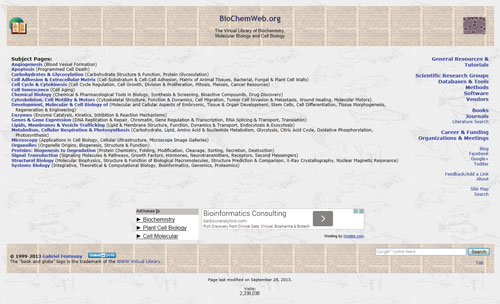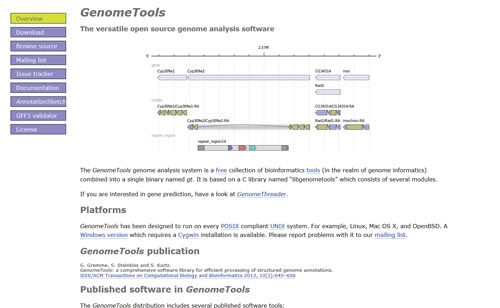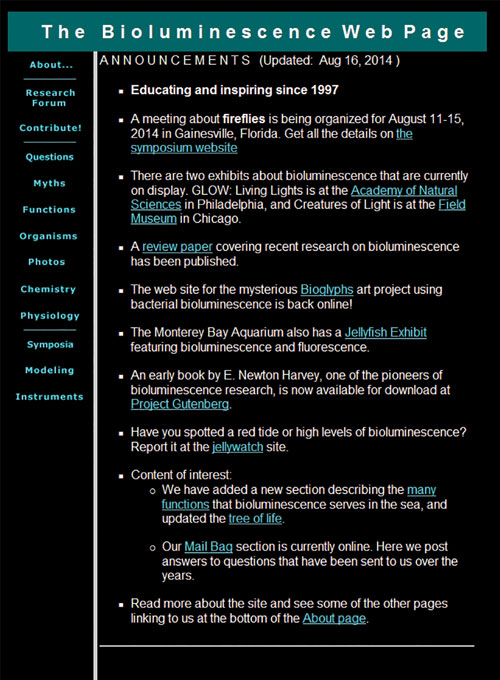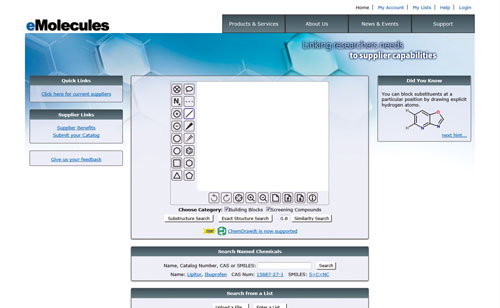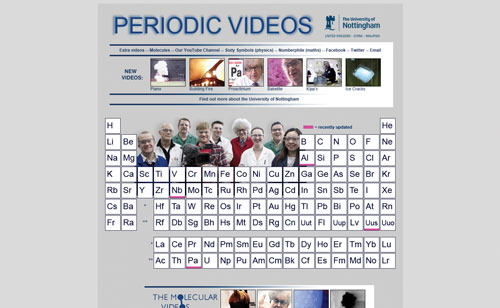Taralyn Tan Ph.D. Curriculum Fellow Harvard Medical
Check out these websites from GEN’s Best of the Web.
The Internet is a big place; when you're looking for biotech-related websites, where should you start? At GEN's Best of the Web, of course! Every other issue, we bring you a list of biotech- and biopharma-related websites we think you, GEN reader, would find useful and/or interesting. Here is our most recent list of the Best of the Web. Enjoy!
Key:
Four stars: Excellent
Three stars: Very Good
Two stars: Good
+ Strong points
– Weak points
BioChemWeb.org ★★★
GenomeTools ★★★
+ Provides free download, documentation documents
– Users need basic familiarity with computer programming
If you find yourself in need of bioinformatics tools, you should check out the freely available tools on GenomeTools.org. This website provides a download of the open source software GenomeTools, which is itself a collection of bioinformatics tools that can run on Linux, Mac OS X, and OpenBSD. (A Windows version is also available, although it requires an additional installation.) Eight tools are included in the GenomeTools distribution, including a tool for the de novo detection of LTR retrotransposons, a library for drawing genome annotations, gene prediction software, and a sequence assembler. The website also includes a mailing list for users, an issue tracker forum, and documentation for GenomeTools, including user manuals for the specific tools in the package. Users will find that having a background in basic computer programming is useful.
The Bioluminescence Web Page ★★★★
+ Lots of content, frequently updated
Anyone who has ever been entranced by a firefly or hypnotized by a glowing jellyfish will agree that bioluminescence—that is, light that is produced by living organisms—is pretty neat. The Bioluminescence Web Page is an excellent website that brings together in one place various tidbits related to bioluminescent creatures, including scientific meetings (yes, there was a meeting on fireflies earlier this year), current museum exhibits, recent publications, and links to other related sites. The site includes a research forum where researchers can discuss their research interests, and it also includes a photo gallery featuring various bioluminescent organisms. Additionally, the site includes an emphasis on education, providing information on the chemical reactions that produce bioluminescence, a discussion of the many uses of bioluminescence, and other content.
eMolecules ★★★
+ Easy to use, many search options
– Limited information displayed, full database requires subscription
Whether you’re at a pharmaceutical company preparing for a drug screen, or you’re simply in search of a few hard-to-find chemicals, you may benefit from eMolecules.com. This website provides a free chemical search tool that, according to the company, is “linking researcher needs to supplier capabilities.” In other words, in response to a user’s enquiry about a specific chemical compound, the website displays a list of suppliers (with catalog numbers) that sell that chemical. (Of note, this search tool is a free version of the company’s eMolecules Plus database, which provides additional information but also requires a paid subscription.) The search options are flexible, as users can either search by compound name, CAS, SMILES, or catalog number; alternatively, users can draw the desired chemical structure using the ChemDraw interface on the site.
Periodic Videos ★★★★
+ Informative and engaging videos
You’ve probably seen a lot of different periodic tables over the years, but I doubt you’ve seen any quite like the one featured on the University of Nottingham’s Periodic Videos website. As the name implies, the website features a periodic table wherein each element is accompanied by an educational video about that element. The videos feature actual chemists from the University of Nottingham, and they also often feature related chemical demonstrations (such as an exploding hydrogen-filled balloon). Even though the team behind the videos has succeeded in covering all 118 elements, the group continues to replace older videos with updated ones. The elements with recently updated videos are conveniently marked on the table. Beyond the periodic element videos, the website also contains a large collection of “extra” videos that cover a wide range of topics.
International Commission on Zoological Nomenclature ★★★
+ Good FAQs section, can browse open cases
With the millions of animal species that have been discovered, one might wonder, who ensures that there are no ambiguities in the species’ scientific names? Why, I’m glad you asked. This task falls to the International Commission on Zoological Nomenclature (ICZN), which maintains international standards of animal nomenclature. The ICZN website offers visitors a glimpse into this organization and the work that it does. The FAQs page, in particular, provides information about taxonomy versus nomenclature, the proper way to write zoological names, and other interesting information. The website describes the progression of cases brought to the ICZN, and also provides visitors the ability to browse or search the open cases. In addition, the site links to Zoobank, the official registry of zoological nomenclature. After visiting this site, one will certainly gain an appreciation for the naming process and the scientific names that we often (or perhaps always) take for granted.
Want more Best of the Web? Click here! Also, to suggest a website for Best of the Web, please send the URL to Taralyn Tan ([email protected]).


